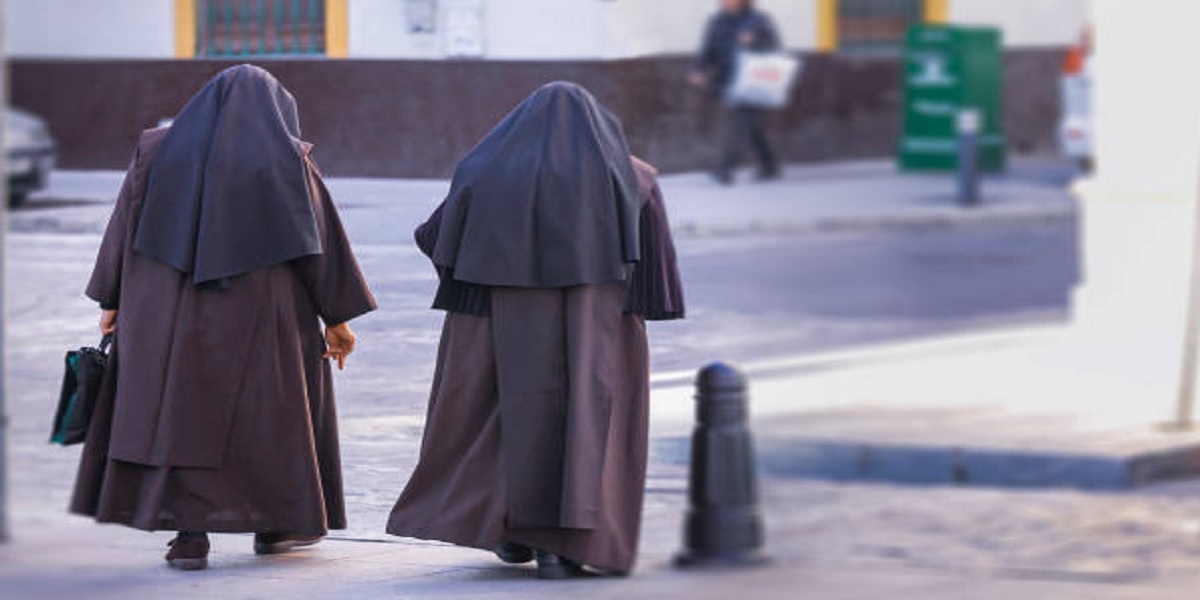The case had drawn attention after the three tribal girls, including minors, were intercepted at Thrissur railway station by a Child Line team. They had arrived on the Dhanbad–Alleppey Express, accompanied by three adults later charged in the case.
Published Jul 31, 2025 | 9:00 AM ⚊ Updated Jul 31, 2025 | 9:00 AM

The investigation included statements from the parents of the girls, who acknowledged having sent their daughters to Kerala with the knowledge and consent of all parties involved.
Synopsis: A court in Thrissur, Kerala, has quashed a human trafficking case against five persons, including two nuns, for bridging three girls from Jharkhand to Kerala, citing lack of evidence of coercion or exploitation. The Additional Sessions Court I held that the prosecution failed to establish key elements of trafficking, noting that the girls travelled with parental consent and no forced labour or abuse was involved.
A court in Thrissur, Kerala, has quashed a trafficking case against five individuals, including two nuns, who had brought three minor girls from Jharkhand to Kerala, purportedly for domestic work in convents.
The Additional Sessions Court I discharged all five accused, stating that there was no prima facie evidence to support charges under Sections 370(1), (2), and (5) read with Section 34 of the Indian Penal Code, which relate to human trafficking and common intention.
The case had drawn attention after the three tribal girls, including minors, were intercepted at Thrissur railway station by a Child Line team. They had arrived on the Dhanbad–Alleppey Express, accompanied by three adults later charged in the case.
Justice K Kamanees, who presided over the matter, found that none of the key elements necessary to establish the offence of trafficking had been demonstrated by the prosecution. “There was no evidence of coercion, deception, abduction, or abuse of power. The girls travelled willingly and with the consent of their parents,” the court noted.
Notably, the court observed that no monetary exchange or promises of undue benefits had been proven. The victims were not subjected to any form of exploitation or servitude. The accused individuals were known to the girls and their families.
“Even if the prosecution’s case is taken at face value, there is no indication of any forced labour, bondage, or exploitation,” the justice remarked. “The court cannot proceed with a trial when the fundamental ingredients of the alleged offence are absent.”
The prosecution alleged that accused Nos 1 to 3 – Amalesh Oraon, Niraj Oraon, and Shanthi Kumar from Jharkhand – with the instigation and knowledge of accused Nos 4 and 5 – Sister Jolly Jose Kundukulangara and Sister Tessy PL, both Mother Superiors of St Joseph’s Convent and Fathima Convent in Poomala respectively – transported the girls from Jharkhand to Kerala for exploitative purposes, thereby constituting trafficking.
The FIR notes that a Child Line official who filed the complaint had intercepted the girls after noticing their presence with adults on the railway platform. Suspicions were raised due to the presence of women in religious attire and the absence of parental accompaniment.
Statements were taken with the assistance of translators, and the girls were later placed under the care of the Snehitha Gender Help Desk. The girls were then medically examined, and their ages were found to range between 15 and 18 years.
The investigation included statements from the parents of the girls, who acknowledged having sent their daughters to Kerala with the knowledge and consent of all parties involved.
Advocate Rajith Davis, counsel for the Thrissur Archdiocese, told South First that they had been confident from the very beginning.
“As per Section 370, human trafficking requires clear criminal intent, such as sexual exploitation, organ trade, or forced labour/slavery. But in this case, the girls themselves stated that they were promised decent pay and better living conditions. That’s why the court quashed the case without hesitation,” he said.
Davis added that the Bishop of Thrissur, along with the provincials and other church members, expressed relief and happiness that the court had recognised their innocence.
“The charges were serious and could have had a lasting impact on the nuns’ lives. The only thing I would like to stress is that Kerala’s Child Welfare Committee must examine the genuineness and intent before proceeding with such cases. In this instance, the girls were given a livelihood opportunity with parental consent. The CWC must be more cautious in distinguishing genuine efforts from wrongdoing,” he said.
The court relied heavily on precedents set by the Supreme Court, including Sajjan Kumar v. Central Bureau of Investigation and the more recent Karan Talwar v. The State of Tamil Nadu, which underline the necessity of a prima facie case to proceed with trial.
The judge emphasised that suspicion, even if grave, must be substantiated with evidence to warrant framing of charges.
The order noted that the prosecution had not alleged, nor was there any evidence to show, that the girls were placed in hazardous employment or kept in bondage, as required under Section 26 of the Juvenile Justice Act.
The girls had not commenced any employment and were intercepted upon arrival, before they could be placed anywhere. Their travel had been motivated by economic hardship and the hope of securing better livelihood opportunities – facts corroborated by the victims and their families.
In light of the absence of any incriminating material or testimony indicating exploitation or trafficking as defined by law, the court discharged all five accused under Section 227 of the Code of Criminal Procedure.
Their bail bonds were cancelled, and they were released from all judicial obligations.
(Edited by Dese Gowda)
